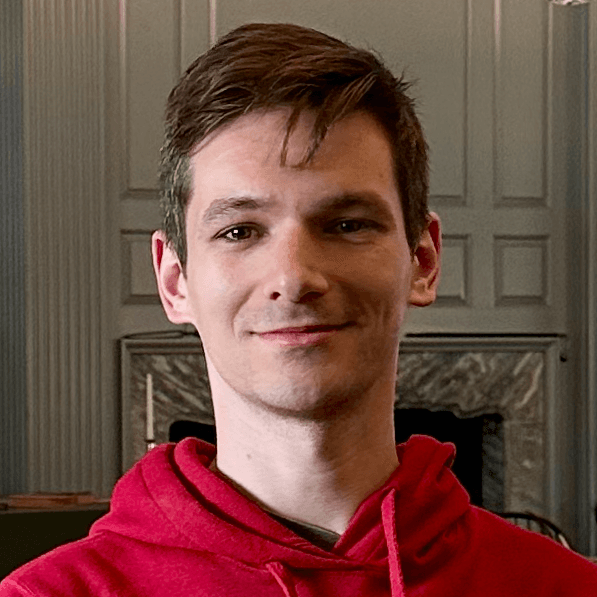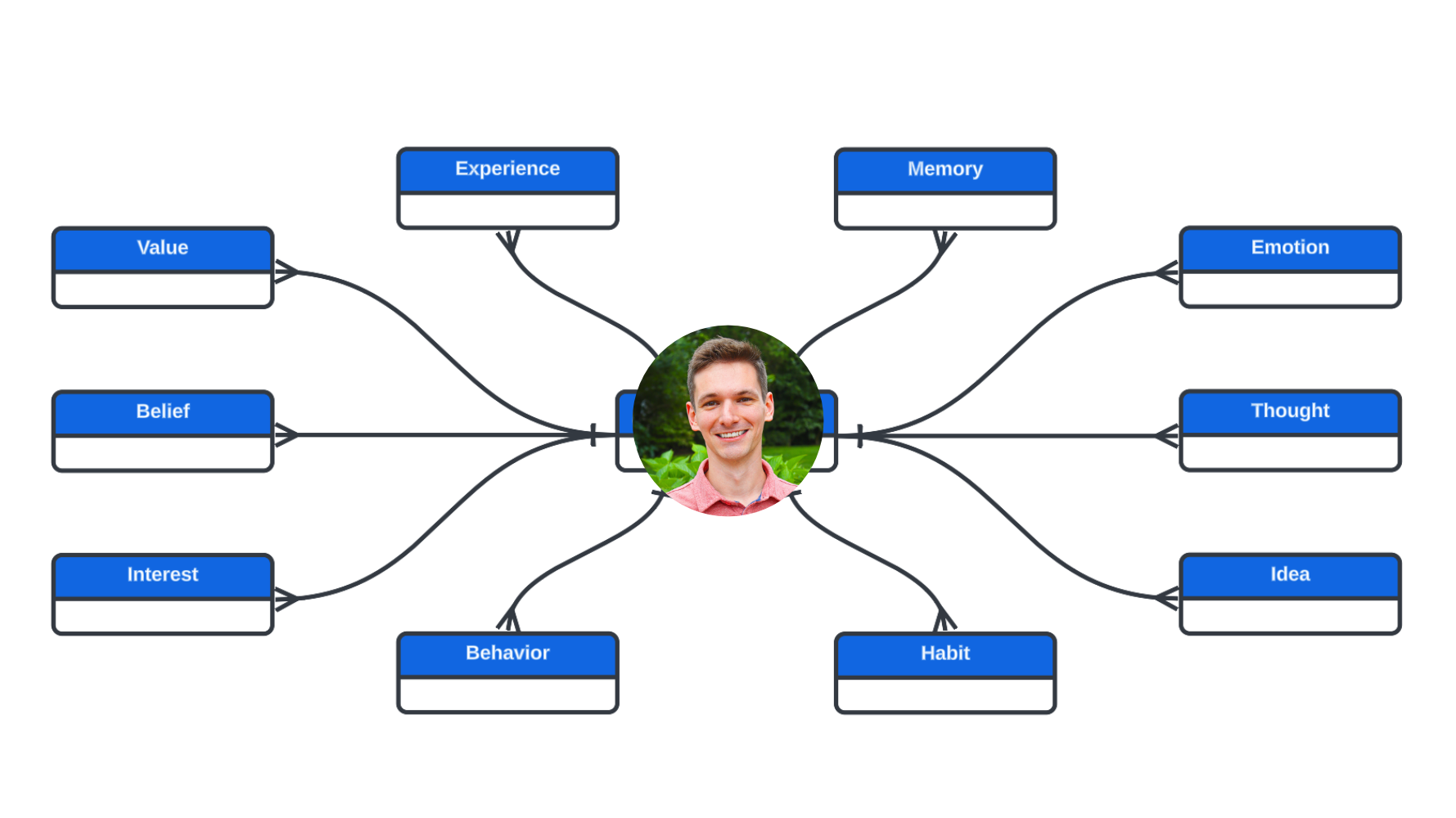Hey there, thanks for stopping by! As a data nerd, I have this idea that life is like a database. It might sound odd, but stick with me—I think it makes some sense and is worth sharing.
Organizing Life
Databases are orderly systems that make collecting, storing, retrieving, and analyzing data simple. Our human brains, however, are fallible and limited in capacity. They tend to store what’s most useful to us.
This is where Tiago Forte’s idea of a Second Brain has been impactful for me. Essentially, its a note-taking system that reduces the cognitive burden of remembering, freeing me to zoom out and see the bigger picture.
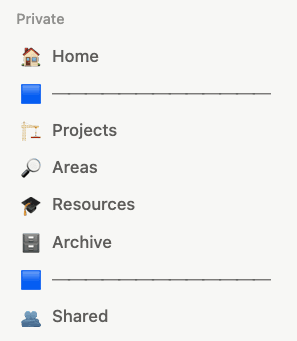
I use Notion for this purpose, treating it as a database of interconnected things that are important, memorable, or even forgettable in my life. It helps keep ideas advancing and reminds me of things I’d otherwise forget.
Relationships
The connections between ideas are crucial, and the better I get at making them, the more creativity I unlock. Steve Jobs, in a 1996 interview with Wired magazine, described creativity as “just connecting things.”
Creativity is just connecting things. When you ask creative people how they did something, they feel a little guilty because they didn’t really do it, they just saw something. It seemed obvious to them after a while.
— Steve Jobs, Apple
The more we connect disparate ideas, the more we can innovate. Just as a well-designed database schema improves data retrieval and insight, making connections in our mind enhances creativity and problem solving. Tools outside our mind can help us achieve this.
In my Second Brain, I have a table of relationships that's become fairly central. I connect different resources, ideas, and experiences to specific people, which is a great way to keep connections organized.
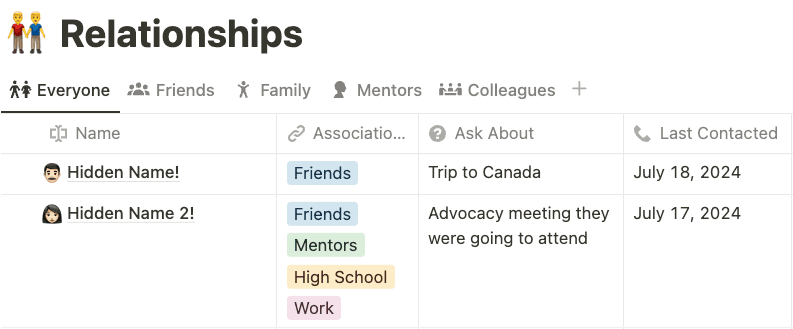
Security
No one wants a database of super sensitive data accessible to anyone, do they? Setting clear boundaries—with ourselves and others—is both challenging and rewarding.
As an entrepreneur, I didn’t want to create a lifestyle of being always on, available 24/7/365. So, I made a rule for myself: no checking email or doing anything work-related before 8 AM or after 8 PM.
Boundaries are most effective when shared with others so they are aware. So far, the world hasn’t ended and cats and dogs aren’t friends (paraphrasing a line I once heard from a consultant).
Decisions
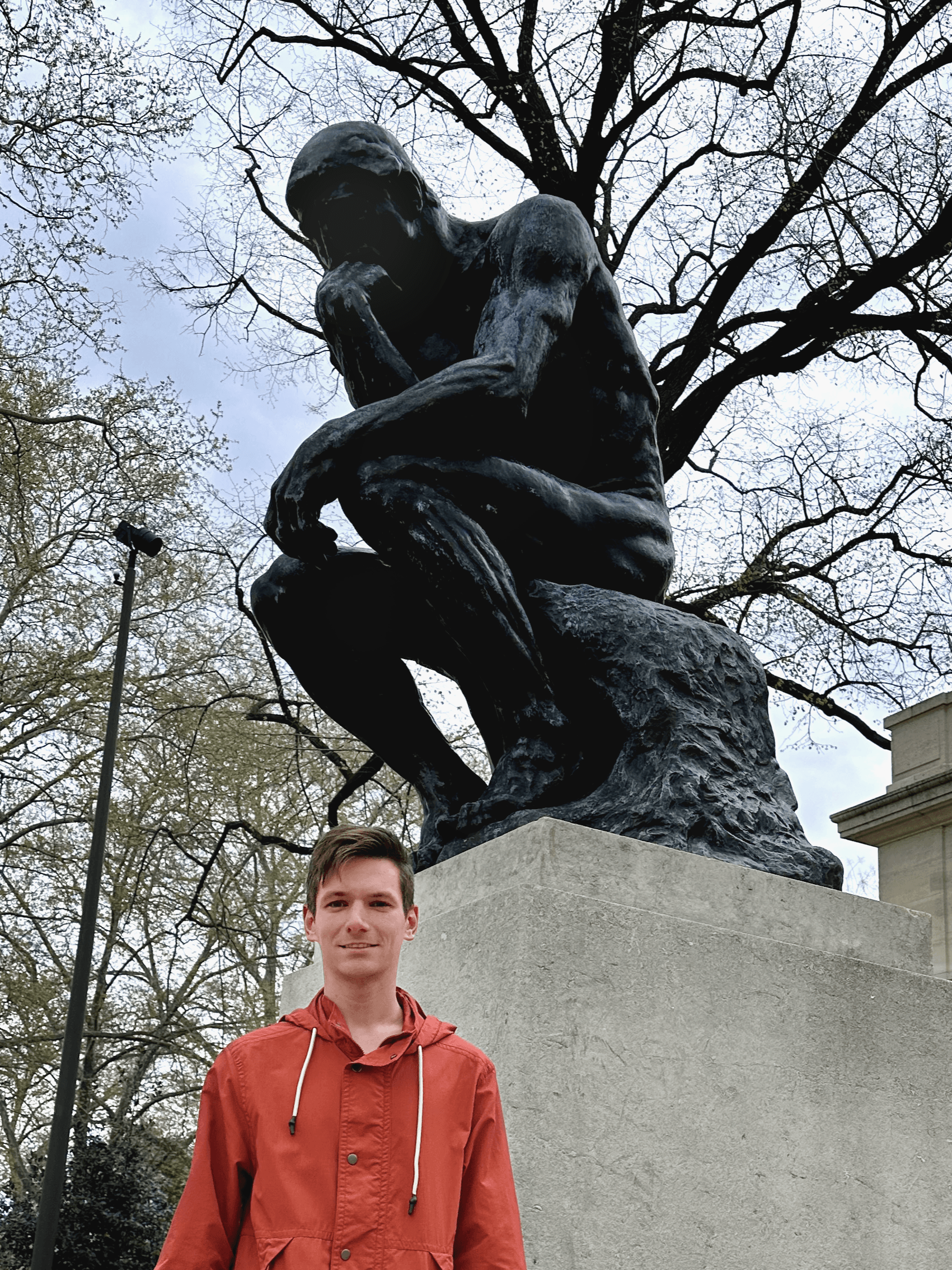
Repeatable processes and procedures are helpful. In databases, querying extracts specific information efficiently. Similarly, structured decision-making processes help make clear, informed choices.
A consultant I once worked with had a principle he followed: build things in a way that removes the need for thinking. I liken this to the line in The Phoenix Project, “improving daily work is more important than doing daily work.” This principle can be applied to decision-making: create processes that simplify choices, reducing mental load.
By treating our knowledge and experiences like a database, we can query our “data” to gain insights and clarity. Pulling from different sources and organizing information systematically allows us to make well-informed decisions. One approach I find useful, from Gay Nicholson’s book The Big Leap, is the idea of converging and diverging—exploring many ideas initially, then narrowing down to the best ones.
Another example is the communication heuristic BLUF—Bottom Line Up Front—from the US military. It means leading with the most critical information (the message), followed by supporting details.

Backup
Always have a plan, but also have a Plan B. In databases, backups ensure you’re prepared for the unexpected events. Murphy’s Law states, “anything that can go wrong, will go wrong.”
Without a clear plan, we’re susceptible to traps. In databases, chasm traps and fan traps can occur when the schematic plan for a query is not appropriately planned. Similarly, in life, can we find ourselves in various traps without careful planning. Planning focuses me on where I’m trying to go. John Correia of Active Self Protection frequently says, “attention buys you time, time buys you options.”
I would never advise being overly planned. As an analytical person, I like to think things through systematically and analyze possible outcomes. This comes at the expense of flexibility. My father has always told me things tend to work out the way they’re meant to, and that seems to be right. The sweet spot for me is between having a clear vision and direction, and allowing things to unfold naturally.
